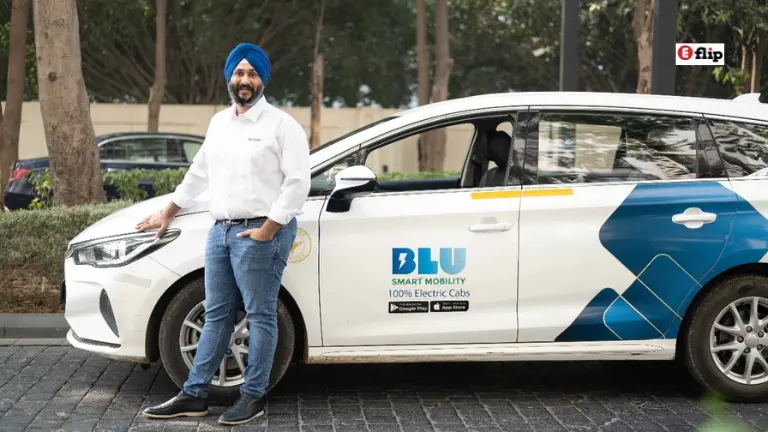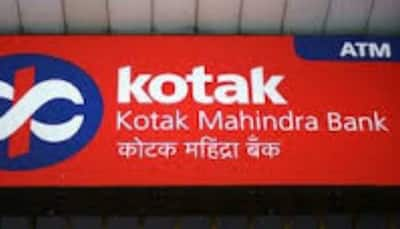Imagine a company riding the wave of India’s clean-tech revolution, promising a greener future with electric vehicles (EVs) and renewable energy. Now picture that same company crumbling under allegations of fraud, mismanagement, and a regulatory hammer from the Securities and Exchange Board of India (SEBI). This is the story of Gensol Engineering and its sister concern BluSmart, two names that were once synonymous with innovation but are now at the center of a financial storm. So, what’s happening? What is SEBI saying? And how did these companies fall from grace? Let’s unpack this saga in detail, exploring the SEBI crackdown, its implications, and the human cost of corporate missteps.
The Rise of Gensol and BluSmart
Before diving into the SEBI crackdown, let’s set the stage. Gensol Engineering, an Ahmedabad-based renewable energy firm, was founded in 2007 by brothers Anmol Singh Jaggi and Puneet Singh Jaggi. It positioned itself as a leader in solar engineering and energy storage, securing projects worth over ₹4,000 crore in Gujarat alone, including a ₹1,350 crore Battery Energy Storage System (BESS) project. Its sister company, BluSmart, launched as an electric ride-hailing service, operating over 8,500 EVs in cities like Delhi-NCR, Bengaluru, and Mumbai. BluSmart promised eco-friendly urban mobility and even attracted high-profile investors like former cricketer MS Dhoni and BharatPe co-founder Ashneer Grover.
For years, Gensol and BluSmart were darlings of India’s startup ecosystem, with Gensol’s market cap peaking at ₹4,300 crore and BluSmart projecting profitability within six quarters by March 2025. But beneath the glossy surface, trouble was brewing, and SEBI’s investigation would soon expose a web of financial irregularities that would send shockwaves through the industry.
What Sparked the SEBI Crackdown?
The SEBI crackdown began in June 2024, triggered by a whistleblower complaint alleging share price manipulation and fund diversion at Gensol Engineering. SEBI, India’s market regulator, launched a probe that uncovered what it described as a “complete breakdown” in corporate governance. On April 15, 2025, SEBI issued a 29-page interim order, barring Gensol promoters Anmol and Puneet Jaggi from accessing the securities market and holding leadership roles in any listed company. The regulator also halted Gensol’s proposed stock split and ordered a forensic audit of the company’s accounts.
So, what exactly is SEBI saying? The regulator alleges that the Jaggi brothers treated Gensol like their “personal piggy bank,” diverting massive sums of company funds for personal luxuries and related-party transactions. Here’s a breakdown of the key accusations in the SEBI crackdown:
-
Fund Diversion: SEBI claims that Gensol secured ₹978 crore in loans from government-backed lenders like the Indian Renewable Energy Development Agency (IREDA) and Power Finance Corporation (PFC) to purchase 6,400 EVs for leasing to BluSmart. However, only 4,704 vehicles, costing ₹568 crore, were acquired. The remaining funds, approximately ₹262 crore, were allegedly siphoned off through a complex network of related entities, including a vehicle dealership called GoAuto and a subsidiary named Wellray Solar Solutions.
-
Luxury Purchases: The diverted funds were used for extravagant personal expenses, including a ₹42 crore luxury apartment in Gurugram’s DLF Camellias, a ₹26 lakh golf set, ₹23 lakh in credit card bills, and ₹8 lakh for interior decoration. SEBI’s order paints a picture of promoters using company money to bankroll lavish lifestyles, raising serious ethical questions.
-
Forged Documents: SEBI uncovered that Gensol submitted fake “Conduct Letters” to IREDA and PFC, falsely claiming regular loan repayments. When SEBI verified with the lenders, both denied issuing such letters, pointing to forgery and misrepresentation.
-
Share Price Manipulation: The regulator alleges that Gensol used its subsidiary Wellray to create artificial trading volumes, inflating its stock price. This manipulation misled investors and contributed to the company’s inflated market cap before the crash.
-
Governance Lapses: SEBI’s interim order describes Gensol’s operations as resembling a “proprietary firm” rather than a publicly listed company. The promoters’ unchecked control and lack of transparency led to what SEBI calls a “complete breakdown” in corporate governance.
These findings have not only tarnished Gensol and BluSmart’s reputations but also triggered a cascade of consequences for investors, employees, and customers.
The Fallout: Stock Crash, Resignations, and BluSmart’s Shutdown
The SEBI crackdown has had a devastating impact on Gensol Engineering and BluSmart. Here’s a look at the ripple effects:
-
Stock Market Collapse: Gensol’s share price plummeted nearly 90% from its 52-week high of ₹1,124.90 to a record low of ₹116.54 on April 17, 2025. The company’s market cap shrank from ₹4,300 crore to just ₹506 crore, wiping out billions in investor wealth. The stock hit consecutive lower circuit limits, reflecting a complete loss of market confidence.
-
Promoter Resignations: In compliance with SEBI’s order, Anmol and Puneet Jaggi stepped down from their leadership roles at Gensol on April 15, 2025. Additionally, independent director Arun Menon resigned, citing concerns about the company’s debt position as early as July 2024. Menon’s exit underscored internal unease about Gensol’s financial health.
-
BluSmart’s Suspension: BluSmart, heavily reliant on Gensol’s EVs, abruptly suspended operations in Delhi-NCR, Bengaluru, and Mumbai. Users reported being unable to book rides, and the company notified customers that bookings were “temporarily closed.” Reports suggest BluSmart is transitioning 700–800 vehicles to Uber’s platform under the Uber Green initiative, signaling a potential end to its independent operations.
-
Gujarat Projects Under Scrutiny: Gensol’s ₹3,000 crore worth of projects in Gujarat, including EPC contracts at Khavda Renewable Energy Park and a planned ₹2,000 crore EV manufacturing unit, are now under review by state government agencies. The lack of progress on these projects has raised doubts about their viability.
-
Investor and Customer Backlash: Retail investors, who once saw Gensol as a clean-tech success story, are reeling from the stock crash. High-profile investors like MS Dhoni and Ashneer Grover have publicly expressed concern, with Grover calling himself a “victim” of the situation after investing ₹1.5 crore in BluSmart. Meanwhile, BluSmart users are struggling to retrieve funds from their digital wallets, adding to the chaos.
What SEBI’s Actions Mean for India’s Startup Ecosystem
The SEBI crackdown on Gensol and BluSmart is more than just a corporate scandal; it’s a wake-up call for India’s startup ecosystem. Veteran investor Vijay Kedia warned that “many Gensols” may still be operating under the radar, pointing to systemic issues like overpromising, excessive related-party transactions, and lavish promoter lifestyles. SEBI Chairperson Tuhin Kanta Pandey emphasized the regulator’s role in “finding and punishing” such companies, signaling stricter oversight in the future.
The scandal highlights several critical lessons:
-
Corporate Governance Matters: Publicly listed companies like Gensol must prioritize transparency and accountability. Treating company funds as personal assets erodes investor trust and invites regulatory action.
-
Due Diligence is Crucial: Investors, from retail to high-profile, must scrutinize financials and governance practices before betting on startups. The SEBI crackdown exposed red flags that went unnoticed for years.
-
Regulatory Vigilance: SEBI’s proactive response, including the forensic audit and promoter bans, underscores its commitment to protecting investors. However, the delay in detecting Gensol’s issues raises questions about the effectiveness of early warning systems.
The Human Cost: Employees, Drivers, and Customers
Beyond the financial and regulatory fallout, the SEBI crackdown has left a trail of human consequences. BluSmart’s drivers, many of whom relied on leasing EVs from Gensol, face an uncertain future as operations wind down. Employees at both companies are grappling with job insecurity, while customers are frustrated by disrupted services and trapped wallet funds. The scandal has also shaken public trust in clean-tech startups, potentially slowing India’s transition to sustainable mobility.
What’s Next for Gensol and BluSmart?
As the SEBI crackdown unfolds, Gensol Engineering has pledged to cooperate fully with the forensic audit. The company insists there is “no other undisclosed price-sensitive information” beyond SEBI’s findings, but rebuilding investor confidence will be an uphill battle. BluSmart’s pivot to Uber’s platform may preserve some of its fleet, but its brand as an independent player is likely irreparably damaged.
SEBI’s forensic audit will dig deeper into Gensol’s financials, potentially uncovering more irregularities. The Jaggi brothers, barred from the securities market, face legal and reputational challenges that could end their entrepreneurial careers. Meanwhile, the Gujarat government’s scrutiny of Gensol’s projects could lead to cancellations, further crippling the company.
A Cautionary Tale for the Future
The SEBI crackdown on Gensol and BluSmart is a stark reminder that even the most promising startups can falter without strong governance. For investors, it’s a call to look beyond hype and dig into financials. For entrepreneurs, it’s a warning to prioritize ethical practices over personal gain. And for regulators, it’s a chance to strengthen oversight to protect India’s vibrant startup ecosystem.
As this saga continues, one thing is clear: the road to a greener future must be paved with integrity, not shortcuts.
Stay informed about the SEBI crackdown and its impact on India’s clean-tech sector. Subscribe to our blog for the latest updates on Gensol, BluSmart, and other market-moving stories. Share your thoughts in the comments—do you think SEBI’s actions will reshape corporate governance in India?









